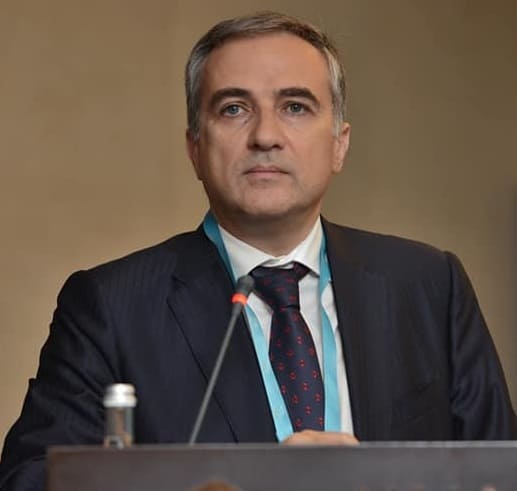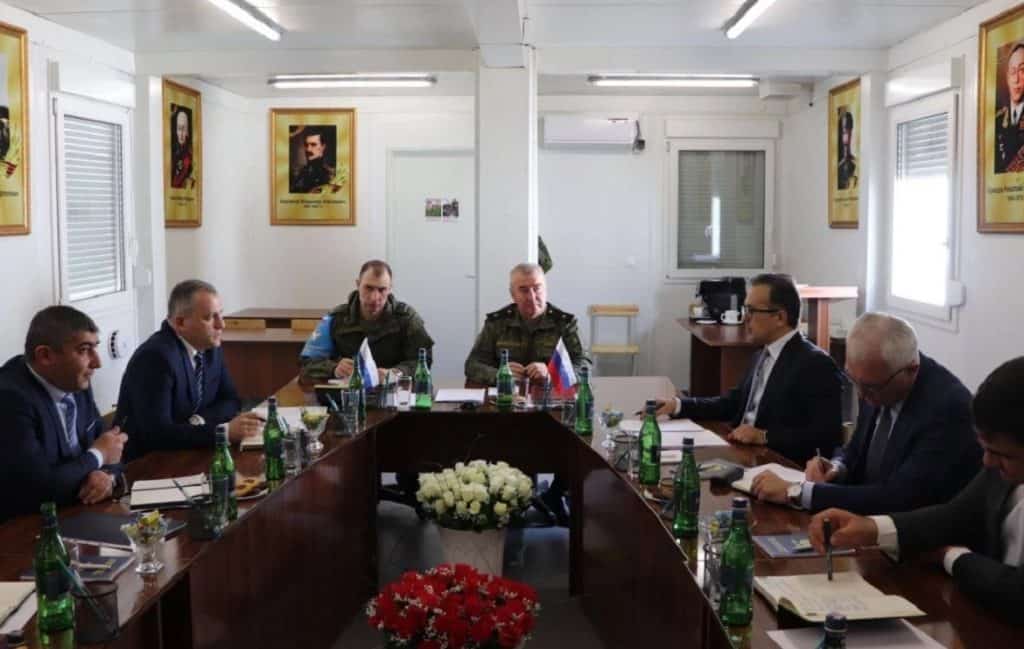World Geostrategic Insights interview with Dr. Farid Shafiyev, Chairman of the Center for Analysis of International Relations, on foreseeable outcomes of the Armenian-Azerbaijani dispute over Lachin and Zangezur Corridor and prospects in peace treaty negotiations.

Dr. Farid Shafiyev is Chairman of the Baku-based Center for the Analysis of International Relations and an adjunct lecturer at ADA University. He served in the Permanent Mission of Azerbaijan to the United Nations and was appointed ambassador to Canada in 2009 and ambassador to the Czech Republic in 2014. Shafiyev is the author of “Resettling the Borderlands: State Relocations and Ethnic Conflict in the South Caucasus” and of other numerous publications. Shafiyev studied at Baku State University and holds a MA in Public Administration from Harvard University’s Kennedy School of Government and a PhD in History from Carleton University.
Q1 – An Azerbaijani delegation met with Armenian representatives of the Nagorno-Karabakh region on March 1 at the headquarters of the Russian peacekeepers, apparently to discuss issues related to the reopening of the Lachin corridor, which connects the region to neighboring Armenia. The two sides gave differing accounts of the agenda and purpose of the meeting while Azerbaijani media reported that the meeting focused mainly on the integration of Karabakh into Azerbaijan. However, EU Special Representative for the South Caucasus, Toivo Klaar, called the talks “encouraging” news, with “discussions focusing on both immediate concerns and broader issues.” What is your view? Is there a chance for a sustainable agreement regarding the Lachin Corridor?
A1 – I believe the meeting between Azerbaijan’s MP Ramin Mammadov and Karabakh’s Armenians is a good sign, though the accounts are expected to differ. Sooner or later, the area where the Russian peacekeepers are temporarily deployed will be reintegrated fully into Azerbaijan’s administrative structure. This is inevitable.
As far as the modalities of the Lachin road, it is also inevitable that the road will be transferred fully under Azerbaijan’s control. Checkpoints will be established. This is in full conformity with international law and the Azerbaijan legislature. The current arrangement was made until 2025, but we can probably expect that it might change earlier than 2025.
Q2 – Azerbaijan has offered a new proposal to Armenia in the ongoing peace negotiations between the two countries: to allow Armenian controls on Azerbaijani traffic along what Baku calls the Zangezur Corridor, in exchange for the establishment of Azerbaijani checkpoints on the road linking Armenia to Nagorno-Karabakh. What is your opinion? Is the idea of an extraterritorial Zangezur Corridor no longer on Azerbaijan’s agenda?
A2 – Azerbaijan had never maintained the idea of extraterritorial control over Zangezur. it is a wrong interpretation of the Trilateral statement and Azerbaijan’s statements. What Azerbaijan offered is to have free passage – uninterrupted as it was written in the Trilateral statement. Since the Armenian side refused serious discussion over this traffic regime both in Lachin and Zangezur, currently I do not see much prospect for that in the near future. However, it might reappear, especially after the establishment of checkpoints on the Lachin road.
Q3 – Azerbaijani Foreign Minister Bayramov recently accused the Armenian side of being “unconstructive,” while in response the Armenian Foreign Ministry stated that Armenia is not trying to slow down the peace treaty negotiations. What is your opinion on developments in the peace negotiations?
A3 – Azerbaijan made its proposal based on 5 basic elements which rest on the mutual recognition of territorial integrity. This is the only realistic way out of the decades of conflict. Both countries made some progress in 2022 under the auspices of EU president Charles Michel. However, after French and Russian interference, the process was derailed.
Russia expressed concern over the draft peace agreement which Armenia and Azerbaijan were discussing within the Trilateral format (Michel-Aliyev-Pashinyan) (Putin called the document the “Washington draft” though the US does not have any draft treaty). Armenia also insisted on changing the Trilateral format into a quadrilateral to include France, which openly took the Armenian side.
Thus, Armenia, by its unconstructive approach to the negotiation process, put on hold the progress. However, the exchange of opinions with regard to the text of the peace treaty continues between respective ministries of foreign affairs. Let’s hope that there will be no spoilers in 2023.
Dr. Farid Shafiyev – Chairman of the Center for the Analysis of International Relations
(Featured top image: Azerbaijani MP Ramin Mammadov, with Major General Andrey Volkov facilitating, meets with Karabakh Armenians at a Russian military base in Khojaly. March 1, 2023)







